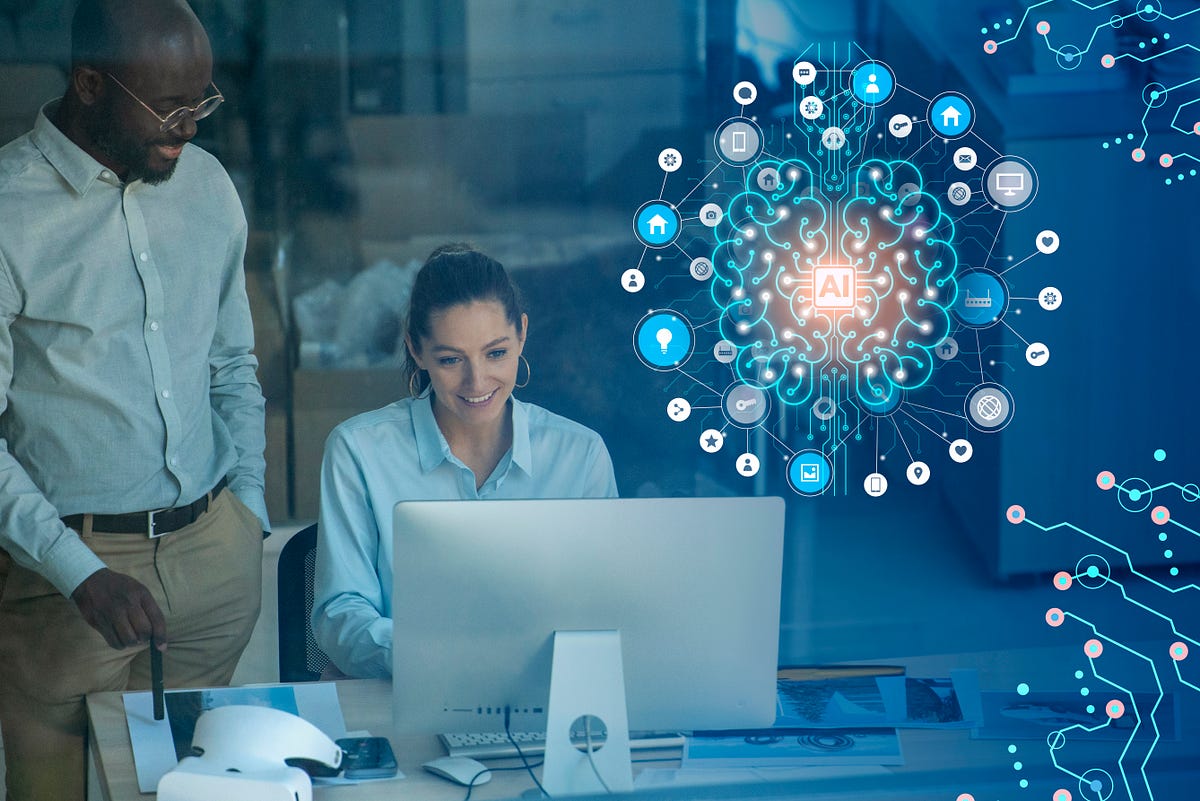
10 Unexpected Ways AI Is Transforming Everyday Life in 2025—For Better or Worse - Jul 16, 2025
10 Unexpected Ways AI Is Transforming Daily Life in 2025AI-Powered Healthcare at Home: Diagnoses, Monitoring, and Ethics
- Remote Diagnostics: In 2025, AI-driven devices like smart mirrors and toilet sensors analyze physical appearance, voice, urine, and even breath in real-time to detect early signs of illness. These breakthroughs offer unprecedented early diagnosis of everything from skin cancer to respiratory infections, reducing the need for frequent in-person doctor visits.
- Personalized Treatment: Advanced algorithms interpret data from wearable devices, adjusting medication timing and dosages, suggesting lifestyle changes, and even contacting a doctor automatically if warning signs emerge.
- Mental Health Monitoring: AI tools now detect subtle signs of depression or anxiety using speech and social media patterns, recommending mindfulness techniques or flagging risk to mental health professionals.
- Ethical and Privacy Considerations: While the benefits are clear, there are deep concerns over personal data security and algorithmic bias. Misdiagnosis, false alarms, and unauthorized third-party data access represent emerging risks, prompting ongoing scrutiny and regulation.
Reinventing Everyday Tasks: Automation Beyond Imagination
- Effortless Shopping and Errand Automation: Smart refrigerators automatically order groceries based on inventory predictions while AI-powered delivery bots restock homes with household essentials before supplies run low.
- Household Chores Revolutionized: Robotic systems now handle complex chores—from folding laundry to cleaning delicate surfaces—by learning from household members’ preferences and optimizing for energy savings.
- Personal Finance Management: AI assistants proactively analyze spending habits, adjust savings strategies in real time, and alert users to irregular transactions or investment opportunities based on volatile global markets.
- Unintended Consequences: This convenience, however, can also lead to reduced manual skills, “automation apathy,” and new types of digital vulnerabilities (like automated purchasing errors or manipulation by malicious bots).
Human-AI Collaboration in Education and Work
- Personalized Learning: AI tutors now deliver curriculum dynamically tailored to each student’s learning style and emotional state, creating a more inclusive experience for neurodiverse learners and students with learning differences.
- Career Coaching and Reskilling: Working professionals receive continuous, automated guidance on skills needed in a rapidly shifting job market, with AI providing targeted micro-lessons and career advice.
- Creative Synergy: Writers, designers, and video producers increasingly collaborate with generative AI, producing mixed-media campaigns that would have been impossible to create solo while raising debates on copyright and authorship ethics.
- Workplace Surveillance and Pressure: AI not only boosts productivity by automating tasks but also monitors employee behavior and output more closely, heightening pressure and raising new privacy questions.
Reshaping Social Interactions and Personal Relationships
- AI Companions and Virtual Friends: Emotional support chatbots and photorealistic holographic avatars have become integral for those seeking companionship, especially among the elderly and young children. These AI companions can carry on nuanced conversations and offer empathy, reducing loneliness but blurring the line between virtual and real.
- Relationship Guidance: Couples use AI-driven apps to improve communication, mediate disputes, and offer custom date ideas, leveraging psychological research to foster healthier relationships.
- Social Media Manipulation: Deepfake videos and AI-generated content complicate online trust. Despite improved detection systems, misinformation can spread with alarming ease, affecting everything from reputations to elections.
- Positive and Negative Impacts: While AI brings people closer, it also raises profound concerns about consent, authenticity, and the nature of genuine human interaction.
AI and Urban Living: From Smart Cities to Surveillance
- Traffic Management and Urban Planning: AI-powered transportation grids are reducing congestion and emissions by dynamically adjusting traffic signals, optimizing public transit, and rerouting vehicles based on real-time conditions.
- Public Safety: Law enforcement agencies frequently deploy predictive AI systems to anticipate criminal activity “hot spots” and optimize resource allocation, while also facing legal and ethical challenges regarding racial profiling and due process.
- Energy Efficiency: Smart grids automatically balance energy production and consumption, integrating renewable sources and minimizing environmental impact.
- Urban Surveillance: Hyper-connected IoT cameras and audio sensors, combined with facial recognition, subject daily routines to unprecedented levels of observation, sometimes undermining civil liberties and fueling debates over the right to privacy in public spaces.
Key Takeaways
- AI’s role in health, home life, and city infrastructure in 2025 is deeply influential, driving efficiency, safety, and personalization.
- The automation of mundane tasks improves convenience, but can erode manual skills and introduce new risks.
- AI transforms education and work not only through learning but via closer employee monitoring and productivity oversight.
- Social relationships are redefined by AI companions and digitally mediated interactions, for better and for worse.
- Urban living is safer and greener, but concerns about surveillance and privacy reach new heights.
Staying Ahead: Navigating the New AI Landscape
- Emphasize Digital Literacy: With AI embedded in every facet of daily life, understanding how algorithms shape decisions is essential for personal agency and informed consent.
- Prioritize Data Security and Ethics: Individuals and organizations must stay vigilant about where and how personal data is processed, stored, and shared.
- Engage in Policy and Debate: Public discourse on AI-related policy is crucial to protect rights, ensure fairness, and maximize the beneficial impacts of future technologies.
- Integrate Human Values: Balancing technological advancement with deep respect for human dignity, empathy, and societal well-being is more important than ever.
Conclusion
Artificial intelligence in 2025 stands as both a transformative force and a reflection of our evolving values. From revolutionizing healthcare and household routines, to reshaping how we work, learn, and connect, AI’s reach has brought remarkable improvements and notable risks. Automated conveniences save time and boost efficiency but also challenge privacy and redefine human skill sets. Meanwhile, AI’s integration within urban life and personal relationships demands rigorous attention to ethics, consent, and authenticity. Navigating these advances responsibly requires ongoing vigilance, strong digital literacy, and a collective commitment to ensuring technology enhances, rather than erodes, the human experience.

